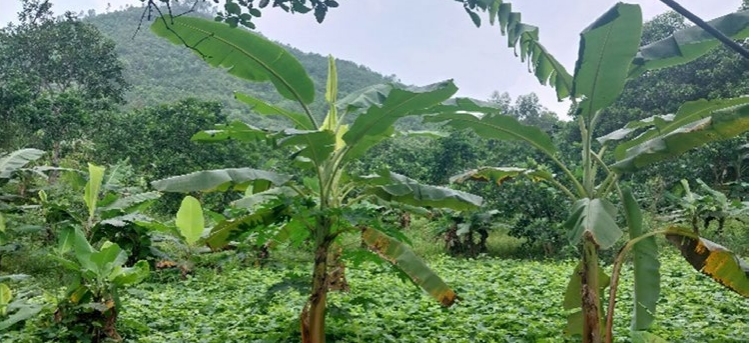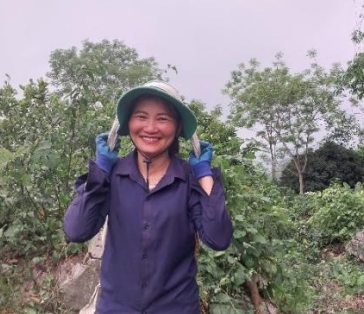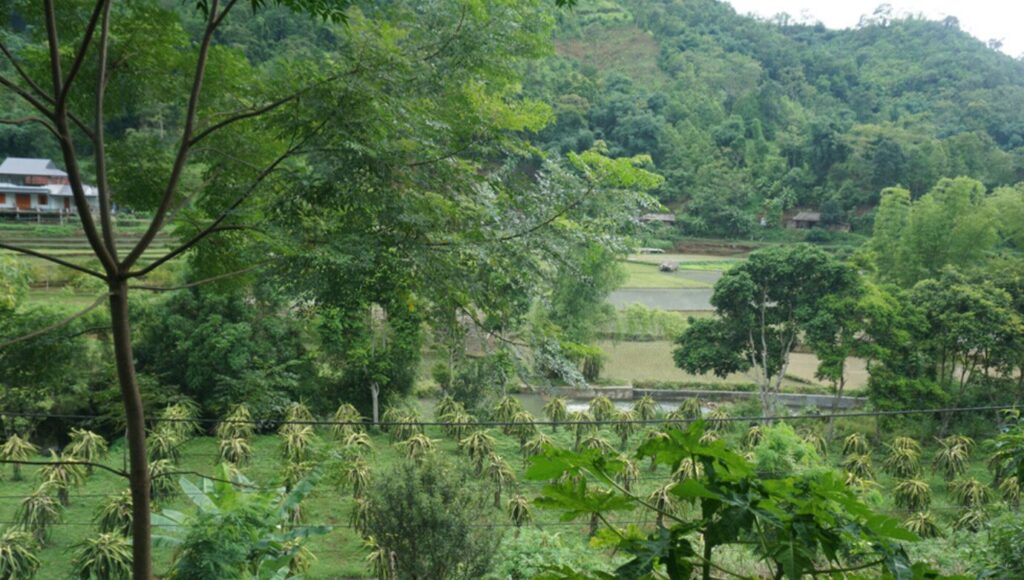Scaling-up community-led EbA in biodiverse forest landscapes in Vietnam
Project Information
With this project, IIED aimed to reduce climate risks and improve livelihoods for farmers by scaling EbA approaches in biodiverse landscapes in 17 communes of five provinces of Northern Viet Nam. Achieving this involved co-developing, documenting and spreading knowledge of EbA best practices cases with and among local communities.
Project Achievements
1. Documentation of Scalable EbA Best Practices: The project documented five scalable EbA best practice cases led by forest and farm producer organisations (FFPOs) active in the project provinces, including various types of agroforestry systems with long-rotation timber species, locally adapted livestock systems, and non-timber forest product cultivation. All cases demonstrated income diversification and highlighted the rich biocultural heritage underpinning locally led climate adaptation in Northern Viet Nam. They demonstrated that a renewed emphasis on these locally adapted species and technologies enables local communities’ to sustainably adapt to climate change.
2. Increased Visibility of Locally Led Adaptation: Produced social media and online content to showcase best practices and smallholder forest and farm producers’ contributions to climate change adaptation, as well as to highlight actions authorities and supporting organisations can take to create an enabling environment for locally led EbA efforts.
3. Exploration of EbA-Linked Product Labelling: Supported four FFPO leaders to participate in a regional conference on shared labelling initiatives in Southeast Asia. Lessons from this event informed initial reflections among FFPOs on the feasibility of developing an EbA-linked labelling system in the project area.
4. Knowledge Exchange and Market Development: Organized a knowledge day exchange event in May 2024 to disseminate findings of the case studies, as well as to share knowledge on innovative marketing strategies to expand market access for products originating from EbA production systems. Participants included representatives of forest and farm producer organisations (FFPOs), national and subnational government authorities, farmer union representatives from all levels, supporting organisations as well as private sector actors. The latter had the opportunity to discuss concrete new business collaborations with FFPOs on selected value chains.
5. Enabling Conditions for Market Access and EbA Scaling: Conducted an in-depth assessment of key stakeholders, the regulatory framework, value chain opportunities, and market demand for adopting collective biocultural heritage label or participatory guarantee system (PGS). This assessment informed the design of concrete marketing strategies for five FFPO value chains, which include bamboo shoots, medicinal plants, honey, as well as diverse fruits and vegetables. The project also carried out a participatory assessment of needs and capacities to scale up EbA across the project areas.
Due to bureaucratic obstacles the project wrapped up in March 2025 before all planned activities could be implemented.
Key Metrics

Huong, DT (2025)
Scaling up ecosystem-based adaptation in Vietnam: Five case studies on best practice

Bình, TTT, Hai, PH, Voan, VLY and Thoan, HT (2025)
Participatory situation analysis report on the Ecosystem-Based Adaptation (Eba) practices, capacities and needs of selected FFPO

Pham, HH and Tran, TTB (2025)
Ecosystem-based adaptation (EbA) value chain analysis: recommendations for forest and farm producers in Vietnam
Tran Thi Thanh Binh (2024)
Workshop report: Collective labelling – shared vision and private sector engagement
Pham, HH and Tran, TTB (2025)
Marketing products based on ecosystem-based adaptation (EbA) approaches for selected forest and farm producer organisations
Kata Wagner (2024)
How smallholder farmers are scaling up local ecosystem-based climate adaptation solutions


